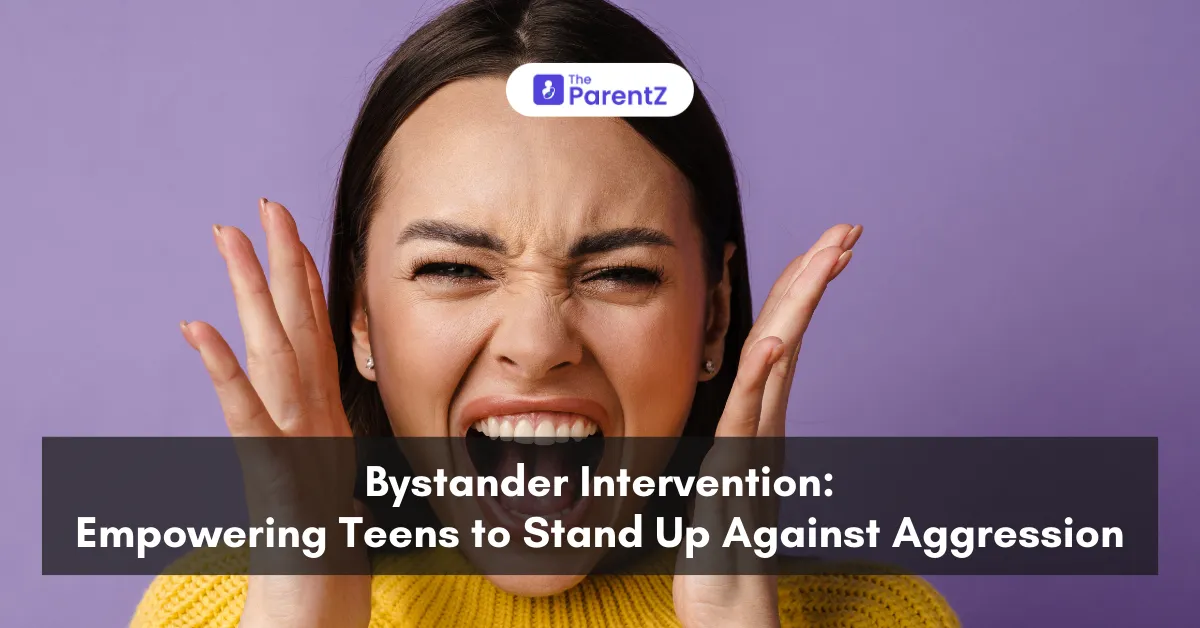We've all been there – walking down a school hallway when we spot someone being pushed around or scrolling through social media and seeing mean comments pile up on someone's post. That pit in your stomach, that voice in your head asking, "Should I do something?" Yeah, that's what we need to talk about.
As parents and educators, we often focus on teaching kids how to handle bullying when they're the target. But what about when they witness it happening to others? Standing by silently might feel safer, but it can leave lasting scars – not just on the victim but also on the witness who wishes they had done something.
Let's break down how we can empower our teens to become active bystanders rather than silent observers.
The Bystander Effect: Why It's Hard to Step Up
First, we need to help teens understand why they sometimes freeze up when witnessing aggression. It's completely normal to feel scared or uncertain. Many teens worry about becoming the next target or being labeled a "snitch." Some might think, "It's not my business," or "Someone else will step in." These are natural thoughts, but they shouldn't be the end of the story.
Bystander Intervention: Practical Strategies for Teens
Here's the thing – intervening doesn't mean you have to be a superhero or get into a confrontation. There are several ways they can help:
#1. Direct: This involves directly intervening to make it clear that aggressive behavior is noticed and unacceptable.
Techniques:
- Use "I" statements: "I don't think that's funny."
- Question the behavior: "Why would you say that?"
- State facts: "That's harassment, and it's not okay."
- Show empathy: "How would you feel if someone did that to you?"
#2. Distract: Sometimes, the simplest approaches work best. If you see someone being harassed, walk up and ask the target for directions, or say hi like you were planning to talk to them anyway. This can break the tension and give the target a chance to leave the situation.
#3. Delegate: Identify other individuals who can assist in safely intervening. This could be a teacher, coach, or another adult who can help defuse the situation.
#4. Delay: Check on the person who was targeted later when you're not sure if it's safe to intervene immediately or you don't feel safe doing so. In our digital age, support doesn't always have to be face-to-face. Sending a private message to someone being targeted online, letting them know you're there for them, can make a huge difference.
#5. Document: If safe, document what is happening by taking a video or writing down what you see. This can be used later to report the incident.
When to Get Adult Help?
This is important – teens need to know it's not "snitching" to get adult help when things look serious. Here are some clear signs it's time to involve trusted adults:
- Any physical violence or threats of violence.
- Repeated harassment or stalking behavior.
- Situations involving weapons or dangerous items.
- When cyberbullying includes threats or sharing private information.
- If the aggressor is significantly older or bigger than the target.
How Parents Can Help?
As parents, we play a crucial role in developing these skills:
- Have regular conversations about what they see at school or online. Make it normal to discuss these situations before they become critical.
- Role-play different scenarios. Practice makes perfect! Act out various situations and discuss different ways to handle them.
- Share your own experiences. Tell them about times you stood up for someone (or wish you had). It helps them understand that everyone faces these challenges.
- Create a safety plan together. Make sure they know exactly who to contact and what to do in different situations.
Conclusion
Remember, the goal isn't to turn our teens into confrontational crusaders. It's about empowering them to recognize their power to make a difference, even in small ways. Sometimes, a simple "Hey, that's not cool" or "Would this be funny if it happened to someone you care about?" can be enough to change the dynamic of a situation.
By teaching our teens these skills, we're not just helping potential victims – we're building a generation that understands the power of standing together against aggression. And that's something worth fighting for.
Remember, being brave doesn't mean not being scared. It means doing the right thing even when you are scared. Let's help our teens find their brave voice, one small act at a time.





Be the first one to comment on this story.